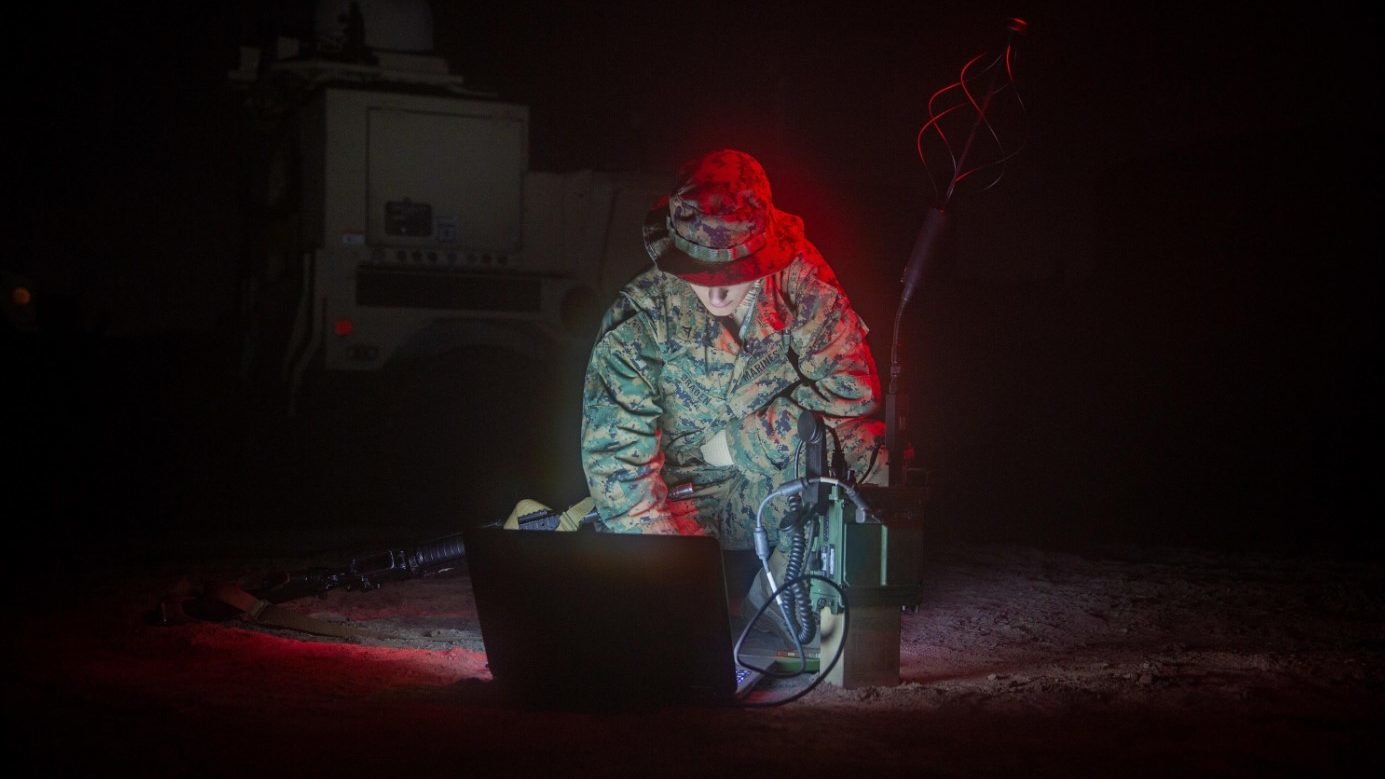Boeing recently demonstrated successful integration of its Protected Tactical Enterprise Service (PTES) software elements with an industry partner’s user terminal, proving technical maturity on the U.S. Space Force’s pathfinder program.
“The Space Force and our industry partners are employing continuous integration, rapid prototyping and agile development across the PTES program to ensure successful deployment of this critical capability, at mission relevant-speed,” said Ms. Charlotte Gerhart, Space Systems Command’s Tactical SATCOM division chief. “A great deal of coordination and real-time collaboration is required for industry teammates to achieve a successful integration event like this one. To fulfill our vision of digital dominance, the Space Force is building on these types of accomplishments to continue developing the most advanced mission-enabling technology to counter the threat.”
PTES provides ground-based Protected Tactical Waveform (PTW) processing, enabling secure operations and protected tactical communications coverage over Wideband Global SATCOM (WGS) satellites – and eventually on commercial satellites – without spacecraft modification. PTW, the U.S. military’s jam resistant waveform, provides security features for data protection.
Making use of WGS military-unique features in conjunction with its wide bandwidth for PTW spread spectrum hopping, PTES-over-WGS provides the U.S. Department of Defense with crucial fleetwide protected communications anywhere on the globe. It mitigates interference and adversarial jamming for high-data-rate satellite communications in contested environments, creating greater resiliency and enabling missions in otherwise denied areas.
At the integration event, the latest in a series of incremental capability demonstrations, Boeing showcased PTES’ encryption capabilities in a virtual environment.
The successful demonstration validated the Boeing-developed key management system’s ability to interface with a PTW ground terminal. It also validated the network management software and virtualized mission planning components. These software elements combine to provide the mechanism for secure communication with the ground terminal.
“This incremental system demonstration provides valuable feedback from Space Force operators and other members of the user community, reducing development and integration risk, while ensuring system capabilities are adaptable to change,” said Troy Dawson, Boeing’s vice president of Government Satellite Systems. “We’re committed to the Space Force’s mission to rapidly develop and deploy technology at operationally-relevant speed. Our PTES program demonstrates how stakeholder collaboration and agile development enable continued advancements to meet the evolving threats on the battlefield.”
In August 2021, Boeing and the Space Force successfully completed the PTES program’s first over-the-air forward-link demonstration using a PTW modem. The next over-the-air demonstration, which includes forward and return-links, is planned for later this year. Initial operational capability is slated for 2023.
As an industry leader in tactical military satellite communications, Boeing is responsible for a portfolio of programs to deliver protected high-data-rate communications to the warfighter. In addition to PTES, Boeing is the prime contractor for the WGS system, as well as the Mitigation and Anti-Jam Enhancement (MAJE) upgrade to the WGS fleet.
PTES is the ground-based anti-jam capability the U.S. Space Force is developing within the Protected Anti-Jam Tactical SATCOM (PATS) portfolio. Boeing is also developing a spaced-based PTW hub, the Protected Tactical SATCOM Prototype (PTS-P).









